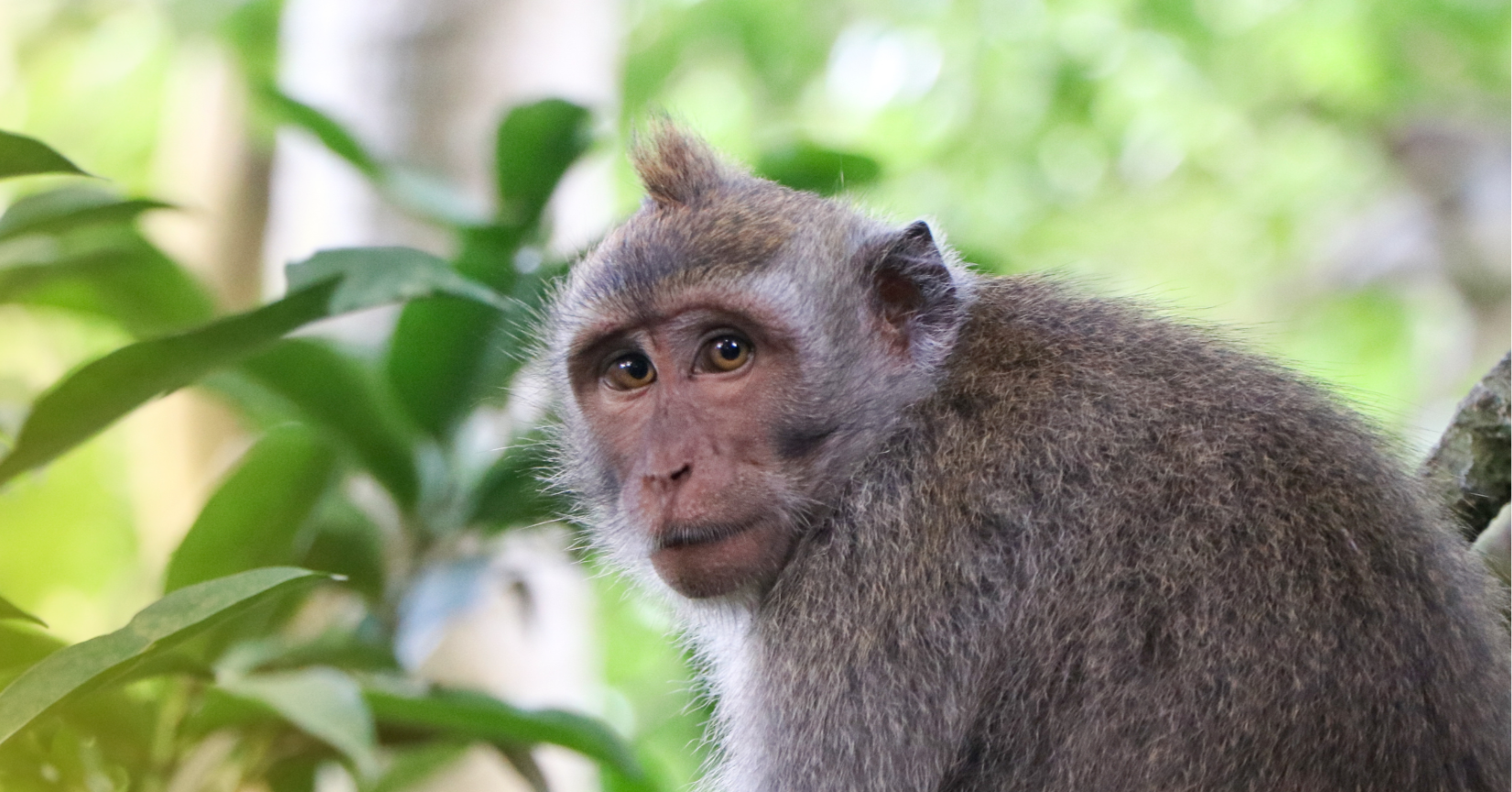
Feds Decide Against Protecting Monkeys Trafficked into Labs
Eighteen months after Rise for Animals signed-on to a petition seeking Endangered Species Act protections for long-tailed macaques, the U.S. Fish and Wildlife Service (“USFWS”) has decided not to protect them.
With this decision the USFWS has shied away from further considering “the most heavily exploited primate species on the planet” for Endangered Species Act protections.
As detailed in the petition, long-tailed macaques are exploited in the name of many human interests, including animal research – for which they are the most commonly traded and trafficked nonhuman primate; and, this was not in direct dispute, with the USFWS openly recognizing that — in its own words — the petitions “present[ed] credible information” of, among other threats, “the collection of wild [long-tailed macaques] for use in biomedical research . . . including wild specimens that are illegally taken, illegally traded, and falsely reported as bred in captivity”.
What was in dispute, however, appears far more basic: whether conclusions should be borne of “credible” evidence. And, per USFWS’s determination, that would be a firm “no” . . . at least when such evidence would direct decisions upsetting to the powerful and politically-connected animal research industry.
Indeed, it appears plain that the USFWS approached the petition with an agenda and reasoned its way backwards to the result it sought.
After conceding the existence of clear threats to long-tailed macaques, the USFWS asserted that the evidence supports only the recognition of threats to individual macaques, not macaques as a species:
“The petition does not provide credible information indicating that the threats identified by the petitioners may have synergistic or cumulative effects on the population such that the petition actions may be warranted for the long-tailed macaque.”
As such, the USFWS found a way to deny the petition alleged the absence of population-wide threats to long-tailed macaques despite both the plain-face reality that threats to individuals translate directly to threats to populations and the existence of overwhelming and incontrovertible evidence of population-wide threats.
To barely scratch the surface:
- The International Union for Conservation of Nature (IUCN) has identified long-tailed macaques as “threatened”, estimated “a population decline of at least 40% . . . over the past three generations”, and forecasted a population decline of greater than “50% over the next three generations”.
- Dozens of scientists recently published a report that provided the first comparisons of “population estimates across multiple countries and regions”, which concluded that long-tailed macaques are in “severe decline” and “near extinction”.
- The trafficking of individual long-tailed macaques affects all long-tailed macaques, not only the individuals trafficked. (Experts are clear that the removal of macaques from their wild groups disrupts “social cohesion”, damages group “culture”, and creates “major instability” – which, together, result in “extrapat[ion]” (or, destruction).)

Rejecting the USFWS’ approach (i.e., letting credible evidence drive our conclusions), we can surmise that the USFWS has made a “political and social decision[]”, not a scientific one.
Not only does an entire, multi-billion-dollar industry exist “around the production, collection, and trading” of long-tailed macaques, but we have previously documented the animal research industry’s aggressive attack on nonhuman primate conservation.
And, unfortunately, it appears that the industry has successfully bullied its way into another “win” for exploitation and greed (and a “loss” for all animals, including humans). Lest there be any doubt, one need only consider a press release issued by the National Association for Biomedical Research (NABR) – an animal research industry front group backed by the largest suppliers and users of nonhuman primates in human research:
“NABR is pleased that the USFWS has declined to accept the petition’ . . . ‘NABR looks forward to working with USFWS to ensure the integrity of its scientific processes.”